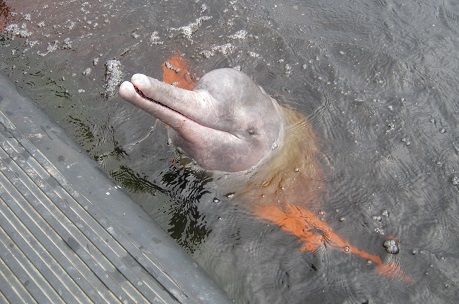A family of amateur archaeologists from Randers digging up clay in Gram Lergrav in south Jutland have discovered the remains of a toothed whale that lived 10 million years ago.
Back then Gram Lergrav would have formed part of the seabed around 100 metres below sea level during a time when the region was pretty mountainous.
A true family effort
A brother and sister, aged 8 and 12, discovered the first fossil fragments, before Dad stepped in to uncover six vertebrae in total.
The Gram Lergrav clay area, which is owned by Museum Sønderjylland, is well known for yielding a high number of fossils, and the museum has cordoned off the area to excavate it fully.
Grow your own surfboard
Three DTU students are busy trying to fashion the first 100 percent biodegradable surfboard. Made using hazardous chemicals and non-degradable materials, most boards are environmentally unfriendly and impossible to recycle, but the trio intend to grow theirs in a surfboard-shaped mould using hemp fibre as a core and living fungi as a binding agent. However, they still need to find a component that can provide a hard shell. If successful the board will eventually end up as fertiliser of fishfood, depending on where it ends up. The students in question, who reject the notion there are any truly sustainable boards on the market, are only working on their BA, so lord knows what they’ll end up doing in their master’s.
Higher incidence of sclerosis in Aarhus than Copenhagen
The risk of developing multiple sclerosis or amyotrophic lateral sclerosis is 18 percent higher in some regions compared to others, according to a survey by the Statens Institut for Folkesundhed public health institute. For example, the risk is higher in Aarhus than in Copenhagen. The authors of the survey, which mapped 13,000 cases recorded between 1971 and 2013, believe environmental factors are to blame, and that the damage is done during somebody’s childhood. They suspect the quality of drinking water could play a major role.
REMA 1000 the best supermarket at fighting food waste
Norwegian budget operator REMA 1000 has been rated the best supermarket at combatting food waste, according to a survey by KANTAR Gallup to mark the tenth anniversary of food waste initiative Stop Spild Af Mad. REMA 1000, a long-term partner of the food waste initiative, was singled out by 30 percent of the participants, nine percentage points clear of second-placed Netto. Supermarkets are generally credited with offering fewer volume discounts (buy two, get one free etc) and more options for smaller households. However, only 21 percent believe supermarkets have played the biggest role in fighting food waste, with 27 percent opting for volunteer organisations like Stop Spild Af Mad.
Vehicle terror attacks are more imitated and improvised than planned
Terror attacks using vehicles inspire others to carry out similar atrocities, according to a joint study by the University of Kent and University of Copenhagen – a little like aircraft hijackings in the 1960s and 70s did. Researchers established it was unlikely the low-tech method of attack was conceived by terror groups such as IS, but merely improvised by individuals hell-bent on causing carnage in countries where security levels at more obvious targets, such as high-profile events and venues, have never been higher. The researchers note that in several cases one ideology’s attack (for example, IS at London Bridge) has inspired another (Islamophobia at the Finsbury Park Mosque), asserting that the attacks are more like crimes of passion than carefully planned terrorist acts.














